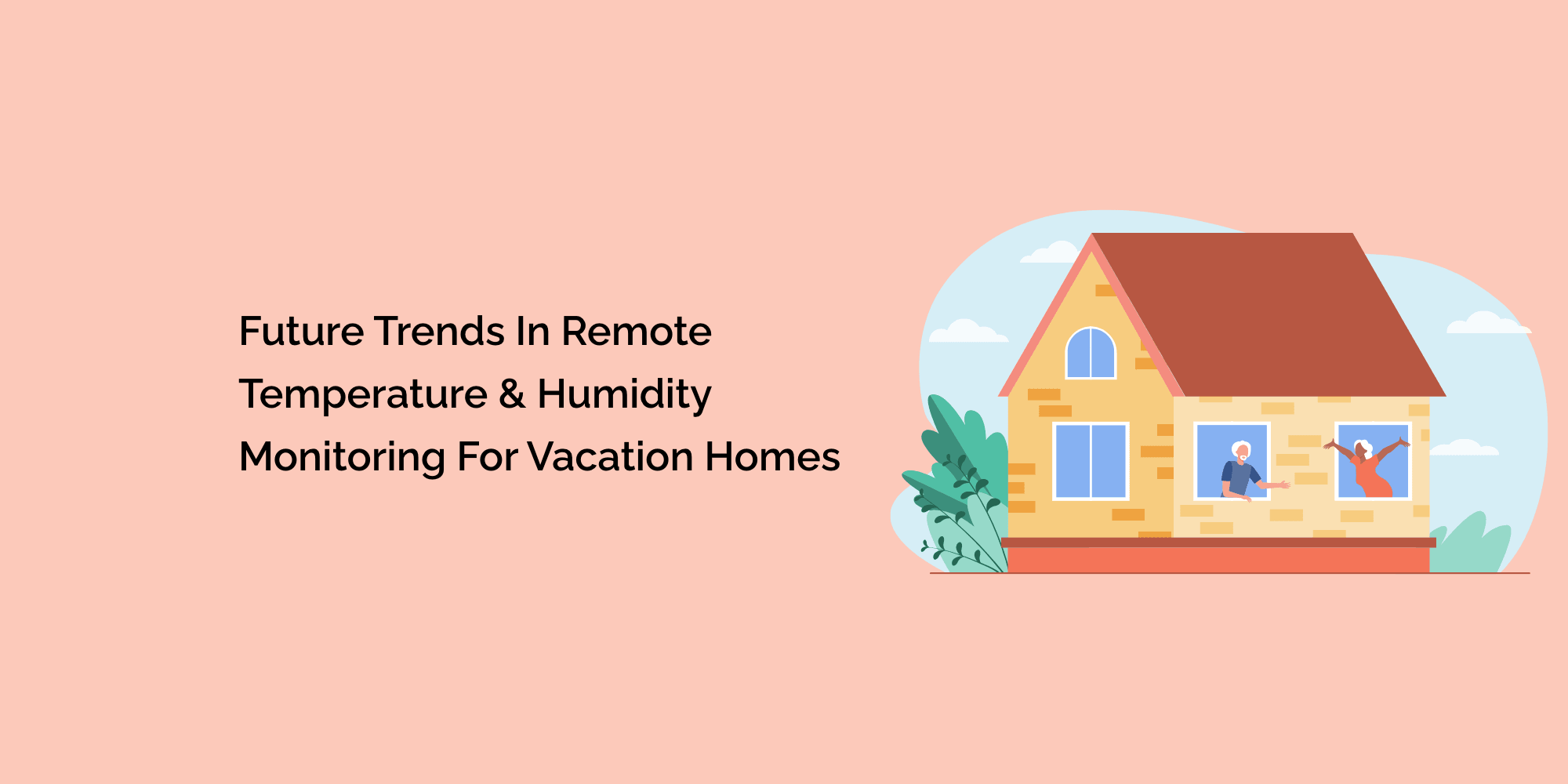Technological advancement has revolutionized how we manage and monitor vacation homes. Remote temperature and humidity monitoring systems have emerged as invaluable tools for homeowners, allowing them to optimize comfort, protect valuable belongings, and enhance energy efficiency. As we look ahead to the future, exciting trends and developments in this field promise to elevate the capabilities of remote monitoring systems further. This blog post will explore future trends in remote temperature and humidity monitoring for vacation homes, providing a glimpse into the exciting possibilities.
Artificial Intelligence (AI) and Machine Learning:
Artificial Intelligence (AI) and Machine Learning are transforming various industries, and remote temperature and humidity monitoring for vacation homes are no exception. Future systems will leverage AI algorithms to analyze sensor data and make intelligent predictions and recommendations. These systems will learn patterns, occupancy trends, and weather forecasts to automatically adjust temperature and humidity settings for optimal comfort and energy efficiency. AI-powered systems can also detect anomalies and alert homeowners to potential issues, enabling proactive maintenance and preventing costly damages.
Internet of Things (IoT) Integration:
The Internet of Things (IoT) has already made significant strides in connecting various devices in our homes, and integrating remote monitoring systems with IoT technology is a future trend that holds great promise. IoT integration will enable seamless communication between remote monitoring systems, smart thermostats, voice assistants, security systems, and other IoT-enabled devices. This integration will enhance convenience and control, allowing homeowners to manage temperature and humidity settings through voice commands or automated routines, creating a truly interconnected, intelligent home ecosystem.
Advanced Sensor Technologies:
As technology continues to evolve, so do the sensors used in remote monitoring systems. Future sensors will offer increased accuracy, precision, and functionality. Advanced sensor technologies, such as wireless mesh networks, miniaturized sensors, and multi-sensor fusion, will provide more comprehensive and detailed data on temperature and humidity conditions. These sensors can detect microclimates within different areas of the vacation home, ensuring precise climate control for each zone.
Predictive Analytics and Data Visualization:
Future remote monitoring systems will leverage predictive analytics and data visualization tools to give homeowners valuable insights into their vacation properties. Predictive analytics algorithms will analyze historical data, weather forecasts, and occupancy patterns to anticipate temperature and humidity requirements. Homeowners can visualize these insights through intuitive dashboards and reports, allowing them to make data-driven decisions and optimize energy efficiency.
Enhanced Energy Management:
Energy management will be a key focus in future remote monitoring systems for vacation homes. These systems will integrate with smart grids and renewable energy sources to optimize energy consumption and reduce carbon footprints. By analyzing energy usage patterns and climate conditions, remote monitoring systems will dynamically adjust temperature and humidity settings to minimize energy waste. Integrating energy storage systems, solar panels, and smart meters will let homeowners fully utilize sustainable energy solutions.
Cloud-Based Solutions:
Cloud computing will play a significant role in the future of remote monitoring systems for vacation homes. Cloud-based solutions will offer secure and scalable platforms to store and analyze vast amounts of sensor data. Homeowners can access real-time data, alerts, and analytics from anywhere using a web portal or mobile application. Cloud-based solutions will also facilitate seamless software updates, ensuring that homeowners can always access the latest features and advancements.
Enhanced Security Features:
Enhanced security features will become crucial as remote monitoring systems become more integrated with other smart home devices. To protect sensitive information, plans will prioritize data encryption, secure communication protocols, and multi-factor authentication. Integrations with security systems, such as surveillance cameras and access control, will provide an extra layer of protection for vacation homes, ensuring the property's and valuable belongings' safety.
Voice Control and Natural Language Processing:
In the future, remote monitoring systems, voice control, and natural language processing will continue to advance. Homeowners can interact with their vacation homes using voice commands, adjusting temperature and humidity settings effortlessly. Natural language processing capabilities allow systems to understand and respond to complex orders and queries, creating a more intuitive and seamless user experience.
Certainly! Here are some frequently asked questions (FAQs) about remote temperature and humidity monitoring for vacation homes and the future trends associated with it:
Are remote monitoring systems easy to install and use?
Yes, remote monitoring systems are designed to be user-friendly and easy to install. They typically come with detailed instructions, and the intuitive interface allows homeowners to monitor and control temperature and humidity settings effortlessly.
How secure do remote monitoring systems collect the data?
Remote monitoring systems prioritize data security and privacy. Reputable systems use secure communication protocols, encryption, and multi-factor authentication to protect sensitive information. Homeowners can choose plans from trusted providers that emphasize data security.
Conclusion:
The future of remote temperature and humidity monitoring for vacation homes is promising and exciting. With the integration of AI, IoT, advanced sensors, predictive analytics, cloud computing, and enhanced security features, these systems will provide homeowners with unprecedented convenience, control, and energy efficiency. As technology evolves, vacation homeowners can look forward to more intelligent, intuitive, and interconnected systems that optimize comfort, protect valuable belongings, and contribute to a sustainable future. Embracing these future trends will undoubtedly elevate the vacation home experience and provide homeowners with the peace of mind they deserve.








